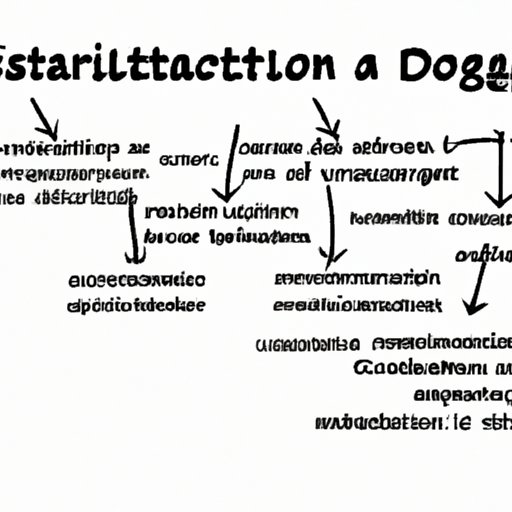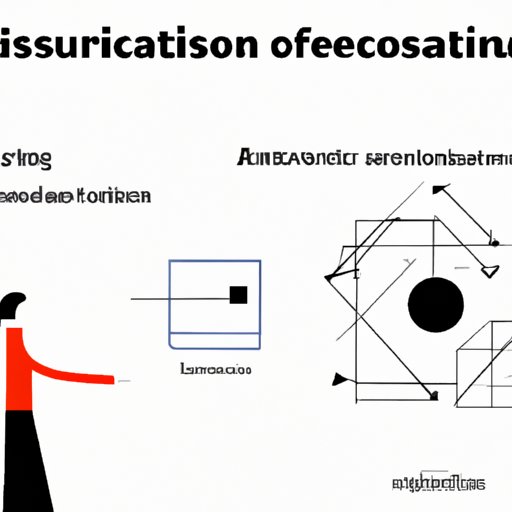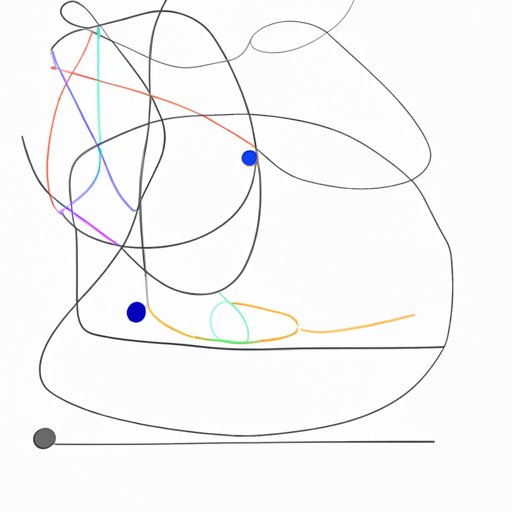Introduction
Abstraction is a fundamental concept in computer science, yet it can be difficult to define. In this article, we’ll explore what abstraction means in computer science, why it’s important, and how it can be applied to improve software design. We’ll also discuss the implications of abstraction on modern computing and how it will shape the future of computer science.

Exploring the Definition of Abstraction in Computer Science
In order to understand abstraction in computer science, it’s important to first explore its definition. According to the Oxford English Dictionary, abstraction is “the action or process of abstracting, or of considering something independently of its associations, attributes, or concrete accompaniments.” In other words, abstraction is the process of taking something out of its context and considering it on its own terms.
When it comes to computer science, abstraction can be defined as the simplification of a complex system into more basic components. This simplification is done by focusing on the essential components of a system and ignoring the non-essential details. As a result, abstraction allows us to break down complex systems into smaller and easier to manage parts.
There are different levels of abstraction in computer science. For example, low-level abstraction focuses on the hardware components of a system, such as memory and processors. High-level abstraction focuses on the software components of a system, such as programming languages and operating systems.

An Introduction to Abstraction in Computer Science
Abstraction is a powerful tool in computer science that can be used to simplify and represent complexity. It helps us to understand large-scale systems by breaking them down into smaller, more manageable pieces. Additionally, abstraction can help us identify patterns and relationships within these systems, further aiding our understanding of them.
Abstraction can also be used to simplify problem solving. By abstracting away the unnecessary details, we can focus on the core elements of a problem and find solutions more quickly and efficiently. This is especially useful for complex problems, where abstraction can help us break down the problem into smaller, more manageable chunks.

Understanding Abstraction and its Role in Computer Science
In order to understand the role of abstraction in computer science, it’s important to understand how it helps us represent complexity. Abstraction allows us to reduce the amount of information we need to consider when dealing with a system, making it easier to understand and manage. By abstracting away the unimportant details, we can focus on the essential components of a system and better understand its overall structure.
Abstraction also helps us understand large-scale systems. By breaking down complex systems into simpler components, we can more easily identify patterns and relationships between the components. This makes it easier to understand how the system works and how it can be improved or modified.

Examples of Abstraction in Computer Science
There are many examples of abstraction in computer science. Perhaps the most common example is the use of programming languages, which are designed to abstract away the complexities of machine code. By using programming languages, we can write code that is easier to understand and maintain, while still executing the same instructions as machine code.
Another example of abstraction in computer science is the use of data structures, such as linked lists and trees. Data structures allow us to store and organize data in an efficient manner, abstracting away the complexities of memory management. This makes it easier to access and modify data, as well as identify patterns and relationships within the data.
Finally, abstraction can also be used in software development. By abstracting away the details of a system, developers can focus on the essential components of a program and create a more maintainable and extensible design. This makes it easier to make changes to the program without having to rewrite large sections of code.
Benefits of Abstraction in Computer Science
Abstraction has many benefits for both programmers and users. For programmers, abstraction can simplify problem solving and make software development easier. By abstracting away the unnecessary details, programmers can focus on the essential components of a problem and find solutions more quickly and efficiently.
For users, abstraction can make programs easier to use. By abstracting away the complexities of a system, users can focus on the essential features and functions of a program. This makes it easier for users to understand and use the program, allowing them to get the most out of it.
How Abstraction Can Improve Software Design
Abstraction can also be used to improve software design. By abstracting away the details of a system, developers can create a more maintainable and extensible design. This makes it easier to make changes to the program without having to rewrite large sections of code. Additionally, abstraction can help developers identify patterns and relationships within the system, allowing them to make more informed decisions about their design.
Abstraction can also help developers create modular designs. By breaking down the system into smaller, more manageable components, developers can create modules that are easier to test and maintain. This makes it easier to add new features to the program without having to rewrite existing code.
The Impact of Abstraction on Modern Computing
The use of abstraction in computer science has had a profound impact on modern computing. By abstracting away the complexities of a system, we can focus on the essential components and create more maintainable and extensible designs. This has allowed us to create larger and more complex systems than ever before, while still keeping them manageable and easy to use.
Additionally, abstraction has allowed us to create powerful algorithms and data structures that can solve complex problems more efficiently. By abstracting away the details of a problem, we can focus on the essential components and find solutions faster and more accurately.
Finally, abstraction has enabled us to create artificial intelligence systems that can learn from their environment and make predictions based on the data they receive. By abstracting away the complexities of a system, we can create AI systems that can process large amounts of data and make accurate predictions.
Conclusion
In conclusion, abstraction is a powerful tool in computer science that can be used to simplify and represent complexity. It helps us to understand large-scale systems by breaking them down into smaller, more manageable pieces, and it can be used to simplify problem solving and improve software design. Additionally, abstraction has had a profound impact on modern computing, enabling us to create larger and more complex systems than ever before. Finally, abstraction will continue to shape the future of computer science, as it enables us to create more powerful algorithms and data structures that can solve complex problems more efficiently.
(Note: Is this article not meeting your expectations? Do you have knowledge or insights to share? Unlock new opportunities and expand your reach by joining our authors team. Click Registration to join us and share your expertise with our readers.)
